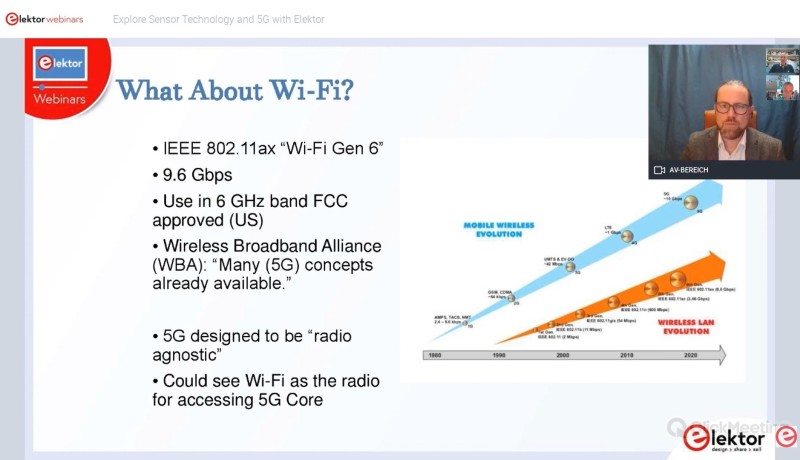5G in Industrial IoT, its Dark(er) Side & Sensors
July 02, 2020
on
on

In order for Industry 4.0 to succeed, factory automation must become more flexible. Going wireless seems the way forward, enabling factories to quickly adapt manufacturing processes to changing demands.
Being able to move work pieces between workstations using autonomous guided vehicles or AGVs, and the integration of cobots, will facilitate mass product customisation. AR goggles enable maintenance teams to undertake repairs and new equipment installations more quickly.
These subjects and much more are discussed in this video.
Elektor Industry, June 2020: Sensors & Measurements
Being able to move work pieces between workstations using autonomous guided vehicles or AGVs, and the integration of cobots, will facilitate mass product customisation. AR goggles enable maintenance teams to undertake repairs and new equipment installations more quickly.
5G or Wi-Fi? Private networks?
Without doubt, 5G will change the industrial automation connectivity landscape over the next decade. However, some features -- such as ultra-reliable, low-latency communications (URLLC) -- are not fully available today. Whether 5G services will be delivered by telecoms operators or by building private networks remains to be seen. And, thanks to the advances in Wi-Fi, these two wireless technologies may converge anyway which will change the dynamic of who installs, owns, and operates it.These subjects and much more are discussed in this video.
Elektor Industry, June 2020: Sensors & Measurements
Read full article
Hide full article


Discussion (0 comments)